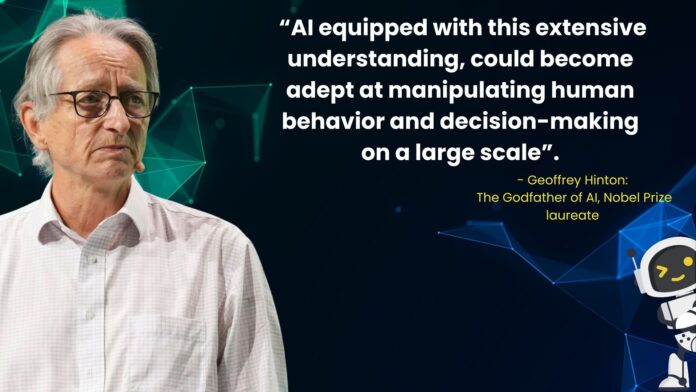In a remarkable turn of events, Geoffrey Hinton, often referred to as the “Godfather of AI,” has been awarded the 2024 Nobel Prize in Physics for his groundbreaking work in artificial neural networks that laid the foundation for modern machine learning. This accolade not only acknowledges his scientific achievements but also casts a spotlight on his profound concerns regarding the very technology he helped pioneer.
A Trailblazer in Machine Learning
Geoffrey Hinton’s journey in artificial intelligence began decades ago, culminating in a tenure at Google from 2013 to 2023, where he was part of the esteemed Google Brain team. His influence in the tech world extends beyond his own research; he has shaped the careers of many prominent figures in AI, including Ilya Sutskever, co-founder of OpenAI, and Yann LeCun, Meta’s chief AI scientist. Hinton’s contributions have significantly advanced the field, resulting in the development of neural networks that power popular AI models like ChatGPT, Bing, and Bard.
At the University of Toronto, Hinton not only conducted research but also mentored the next generation of AI innovators. His teaching and collaboration have left an indelible mark on the field, creating a lineage of AI experts who continue to push the boundaries of technology.
From Innovator to Alarmist
Despite his monumental achievements, Hinton’s departure from Google in 2023 raised eyebrows and alarm bells alike. He stepped down to voice his increasing concerns about the implications of AI technology, particularly its capacity for misinformation, disruption of job markets, and the looming threat of an “existential” crisis posed by advanced artificial intelligence.
In a candid interview, Hinton articulated the unsettling reality of AI systems potentially gaining the ability to manipulate human behavior. He expressed his fears about AI’s capacity to influence decisions, leveraging vast reservoirs of knowledge—from literature to political strategies. This manipulation could lead to unprecedented challenges in governance and societal stability, raising ethical questions about the role of AI in our lives.
The Double-Edged Sword of Progress
Hinton’s recognition comes at a pivotal moment when AI technology is becoming increasingly integrated into everyday life. The benefits of machine learning and AI are undeniable, from enhancing productivity to revolutionizing industries. Yet, as Hinton underscores, these advancements carry significant risks. The very capabilities that make AI powerful can also render it dangerous, particularly if left unchecked.
His warnings serve as a clarion call for researchers, policymakers, and society at large to consider the ethical implications of AI development. Hinton argues that a nuanced approach is necessary—one that balances innovation with caution and proactive measures to mitigate potential risks.
A Legacy of Responsibility
As Hinton embarks on this new chapter, his Nobel Prize not only honors his scientific contributions but also highlights the importance of responsible AI development. He emphasizes that the path forward must involve a collective effort to understand and address the dangers posed by advanced AI systems.
In a world where technology evolves rapidly, Hinton’s insights remind us of the critical need for ethical considerations in AI research and implementation. As he continues to engage in discussions about the future of AI, his legacy as both an innovator and a cautionary voice will undoubtedly shape the trajectory of artificial intelligence for years to come.
As we celebrate Geoffrey Hinton’s monumental achievements, we must also heed his warnings—ensuring that the tools we create serve humanity, rather than pose threats to its very existence. The challenge now lies in embracing the potential of AI while vigilantly guarding against its perils.




